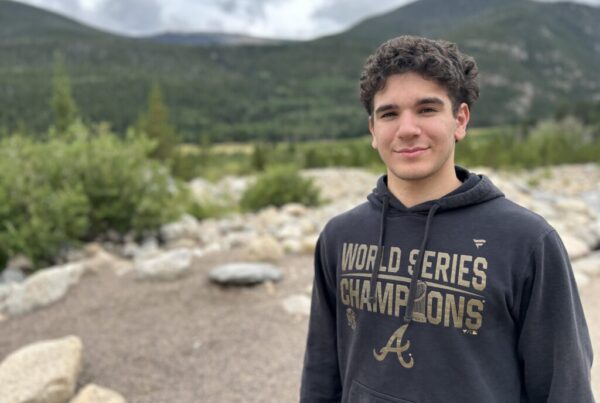By Rabbi Jonathan Crane and Joanna Kobylivker
During the month of Elul, Jews blow the shofar daily in preparation for Rosh Hashanah. This year, the shofar’s distinct cry also heralded the beginning of another cycle, the shmitah year.
Shmitah is a biblically-mandated agricultural rule to let the land lie fallow every seventh year. The land’s rest, as the great medieval philosopher Maimonides reflected, makes the earth more fertile and stronger. Moreover, he says that observing the shmitah helps make people more compassionate, it makes civilization better. This may be because the shmitah year is like a shofar, a chance for the land, air, and water to cry out, awaken us both to our vital dependence on and cruelty toward the natural world.
The advent of a shmitah year, like Rosh Hashanah and Yom Kippur, provides us a chance to take stock of our behavior. Every seven years Judaism encourages us to inquire about our “agricultural report card.” By all accounts, we merit a failing grade. Most credible evidence points to the overwhelming conclusion that our environment is worse off now than it was seven years ago. And scientific consensus confirms that it is human activity that is responsible for this global environmental deterioration.
The science is simple. The implications are serious. Sea level rise, longer droughts, more flash floods, more fires, slower moving and stronger hurricanes, more intense cold air outbreaks while the poles warm faster, hotter temperatures overall, increased desertification (including parts of Israel, many areas already fraught with tension over water rights), food and water resource challenges leading to climate refugees. It’s a serious list. And Judaism tells us we may not ignore this problem. We do not have that luxury.
Just as the Jewish new year holidays instruct us to acknowledge the harms we cause and to commit ourselves to doing better, so does the shmitah year. We are not at liberty to justify the environmental harms we have caused, or to downplay, deflect, or disavow them.
On the contrary, Jews are to muster the courage to be honest in our self-assessment. This is true in the ways we treat each other and especially in regard to the way we treat the natural world. It means exercising more restraint when it comes to using disposable plastic, taking a hard look at the amount of carbon we consume in the form of gas and electricity, considering the sources of the food that we eat, and reducing how much we discard. It means demanding better sustainable practices from our companies and stronger environmental protections from our governments.
We still have a chance to preserve the natural world and protect the health and lives of our neighbors, and by coming together as a community we can do just that. As Hans Jonas, a great 20th-century Jewish philosopher, put it: “Our descendants have a right to be left an unplundered planet.” This shmitah year, let us do what is necessary to make good on that right. We have no time—and no environment—to waste.
Rabbi Jonathan Crane currently serves as the Raymond F. Schinazi Scholar in Bioethics and Jewish Thought in the Center for Ethics at Emory University, is a Professor of Medicine, and is the founding director of the Food Studies and Ethics initiative at Emory.
Joanna Kobylivker is the Community Organizer for the Jewish community at Georgia Interfaith Power and Light (GIPL) and is the Founder and Chair of the Jewish Climate Action Network of Georgia (JCAN GA).





